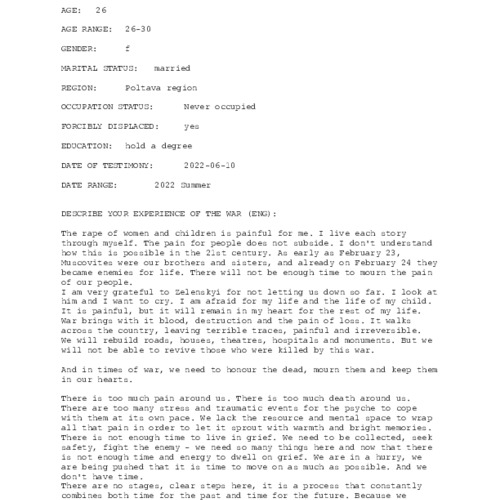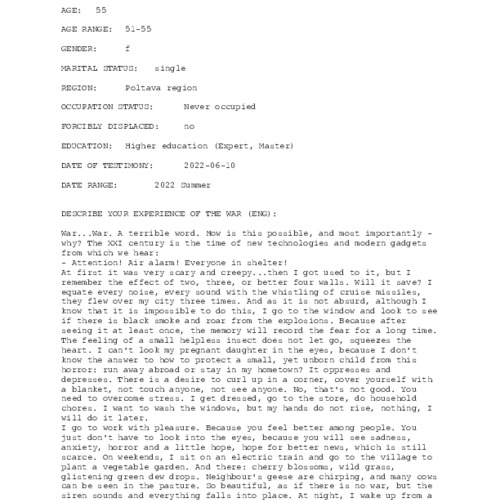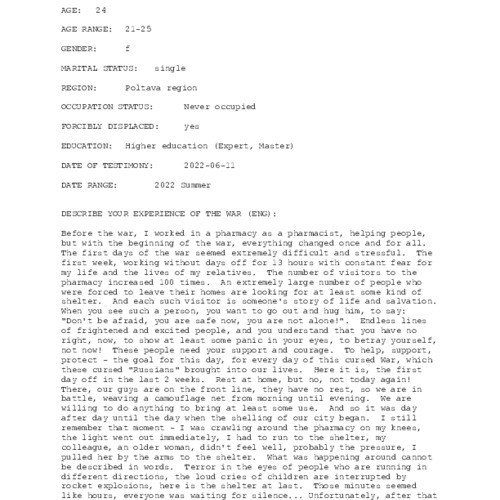Emotional Frontlines: Ukrainian Women and the Invisible Wounds of War
War is often understood through images of visible devastation, bombed buildings, military casualties, and displaced families. But just as enduring, and often overlooked, is the emotional destruction that lingers inside the survivors. This exhibit centers four testimonies from Ukrainian women in the Poltava region, offering a deeper look into the psychological and emotional costs of war, costs that are neither seen nor easily healed.
Through the lens of maternal fear, fragmented memory, and internal resilience, this exhibit explores how war reshapes not just landscapes but identities. These women are not soldiers or politicians. They are caregivers, professionals, and mothers, tasked with comforting others while navigating their own silent trauma. Their stories uncover the invisible labour of emotional survival: grieving in silence, suppressing fear, and holding families together as the world falls apart.
Each testimony illuminates a different facet of civilian suffering. A young mother mourns the trauma of sexual violence and the societal pressure to suppress it. An older woman voices intergenerational anxiety as she struggles to protect her pregnant daughter. A pharmacist endures airstrikes while continuing to care for the displaced. Another rejects once-close Russian relatives and describes how war has numbed her capacity to feel joy. What unites these voices is not a single narrative, but a shared determination to endure, resist, and make sense of the senseless.
Language, spoken, broken, prayerful, emerges as both a coping mechanism and a tool of resistance. These testimonies reveal how expression becomes an act of survival, and how voice, even when uncertain, is a powerful form of presence. This exhibit reframes “resilience” not as silent endurance, but as the everyday courage to keep caring, speaking, and holding space for grief in the midst of chaos.
This exhibit does not just document war, it invites you into the emotional frontlines, where survival is measured not in victories or defeats, but in the quiet strength of women who refuse to be erased. Through their stories, we witness how pain, language, and memory shape what it means to live through war and to live beyond it.



